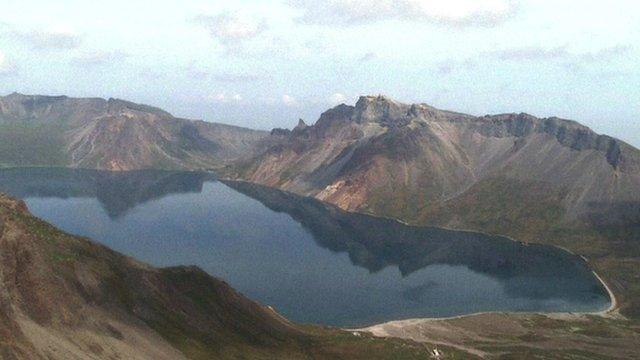Could North Korea ever be a surfer's paradise?
- Published
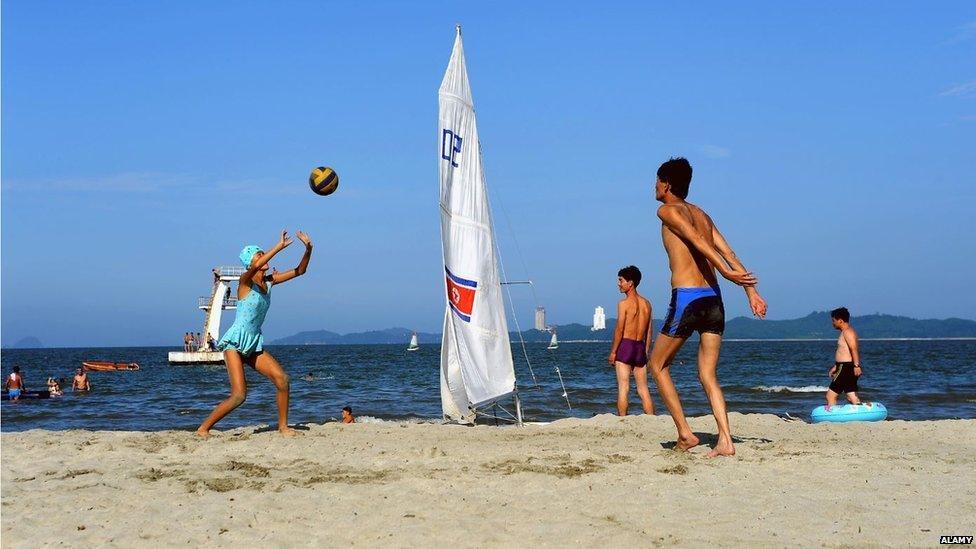
California it is not - but does North Korea have the potential to be the next surf destination?
Forget Namibia, Antarctica or even England's Severn Estuary; is North Korea about to become one of the world's most unusual surf destinations?
Starting on Sunday, an eight-day surfing safari, external will take a group of tourists into North Korea to experience its remote, sandy beaches.
The expedition, led by Italian champion surfer Nicola Zanella who also coaches China's national surf team, will explore, map and evaluate surf spots along the east coast.
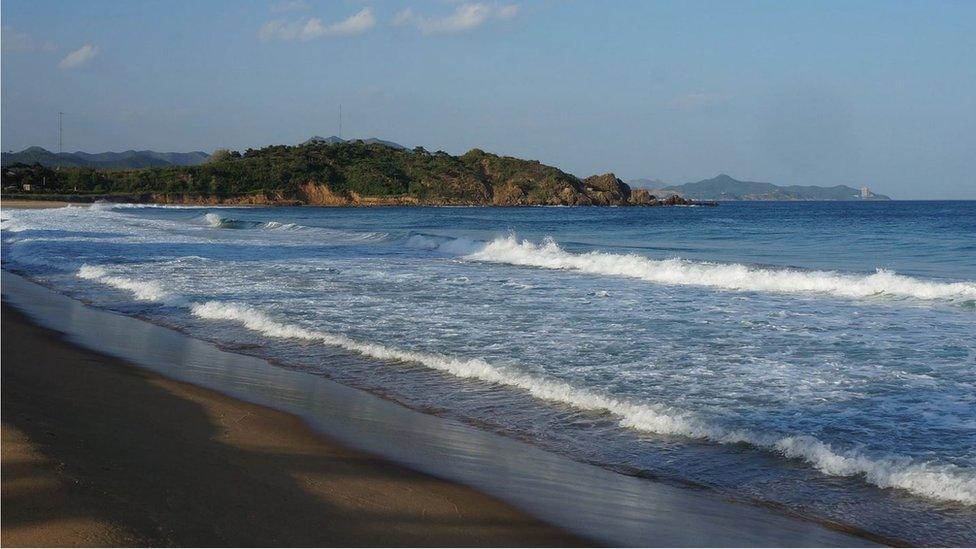
This photograph, provided by Uri Tours, shows Hamhung, one of the North Korean beaches the surf expedition is expected to visit
But what kind of experience will it really be to surf in the hermit kingdom?
A potentially "dangerous one", according to North Korean expert and former Associated Press Pyongyang bureau chief Jean Lee in Washington DC.
"The country does have some beautiful, white sandy beaches along its east coast but I can't think of a place that is more antithetical to surfing's 'hang loose' culture."
'Building surf culture'
Mr Zanella, who lives in China's island province of Hainan, will be visiting North Korea for the first time.
"There are many reasons to surf in North Korea. Waves are empty, un-surfed and they break on pristine beaches where few foreigners have set foot," he said.
He also told the BBC that the tour aims to educate young North Koreans on water safety and will help build "a solid local surf culture".
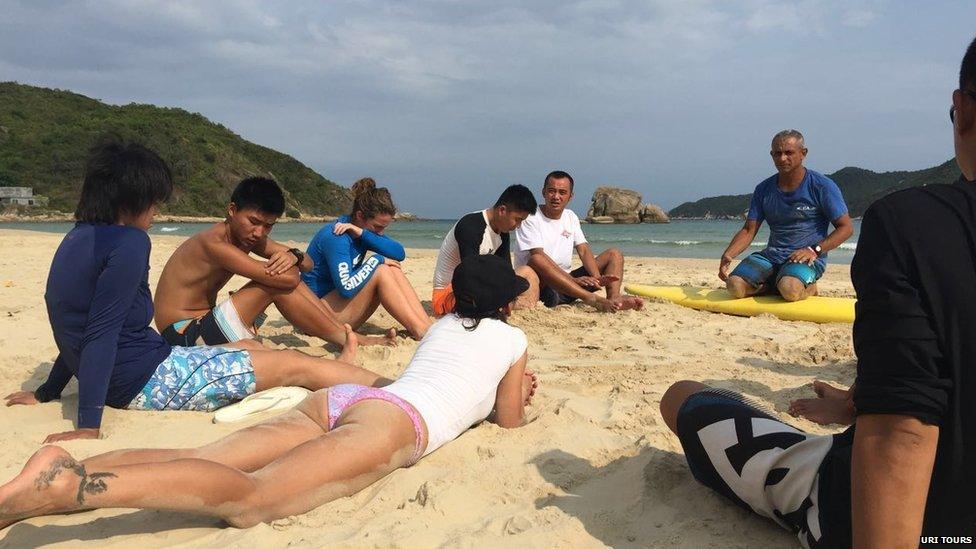
Champion surf coach Nicola Zanella (R) will lead the surf tour in North Korea
The surf tour has received "official approval from the North Korean government" and will kick off in the capital, Pyongyang, according to Andrea Lee, tour group organiser of the US-based Uri Tours which regularly takes groups to the North.
Surfers will be taken to several prominent monuments to pay respects to late leaders Kim Jong-il and Kim Il-sung as part of "official protocol", she explained, before the sport begins.
"We are always looking to diversify our tour offerings to give travellers unique ways to experience North Korea. We are also big proponents of sports tourism; our past tours included skiing and running in the Pyongyang Marathon and that allowed our tourists the greatest interaction with locals."
She also told the BBC the response so far had been "overwhelming and encouraging".
"We've been contacted by surfers from all over the world who want to join the tour so we already have a pretty diverse group of all skill levels."
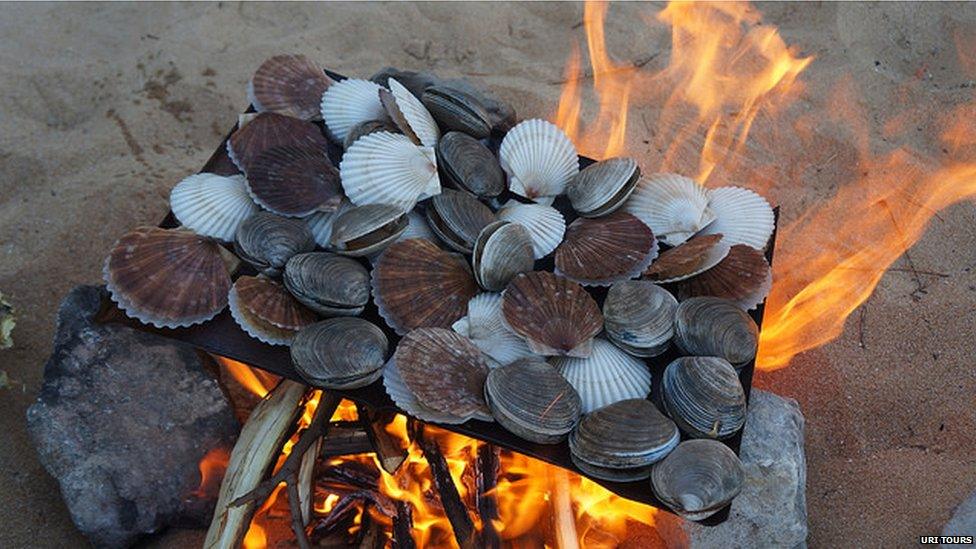
Fresh clams in Wonsan city close to some of North Korea's beaches
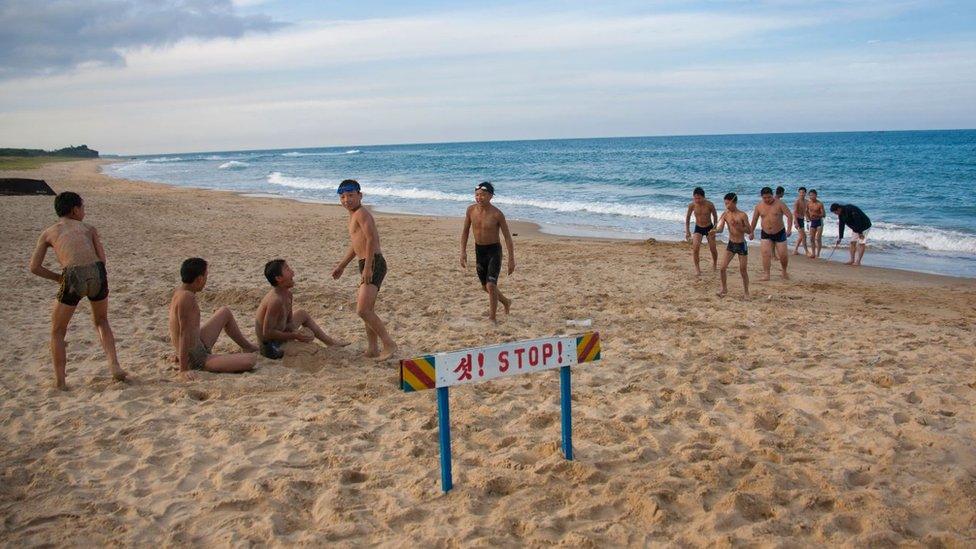
While some North Koreans enjoy visiting the beach, surfers are a rarity
The heavily patrolled waters of North Korea's east coast lie between the seas of Japan and Russia.
Satellite images show the remote coastal communities of Sijung and Hamhung, both dotted by outlying islands and boasting clear blue seas.
But according to Jean Lee, North Korean waters wouldn't deliver any "promising surf".
"I've gone swimming at Majon beach and have been to Sijung; this isn't big surf. The waves are pretty flat this time of year."
She also said that while some North Koreans love going to the beach, she has never seen a surfer.
"Most of the people I met at the public beaches were factory workers or farmers who were visiting for the day. There are fisherman working along the coast too, but they don't live at the beach," she said.
"Korea may be a peninsula but watersports isn't part of tradition. But if North Korea wants surfers, they'll certainly assign that challenge to their young athletes so that they're catching waves by September."
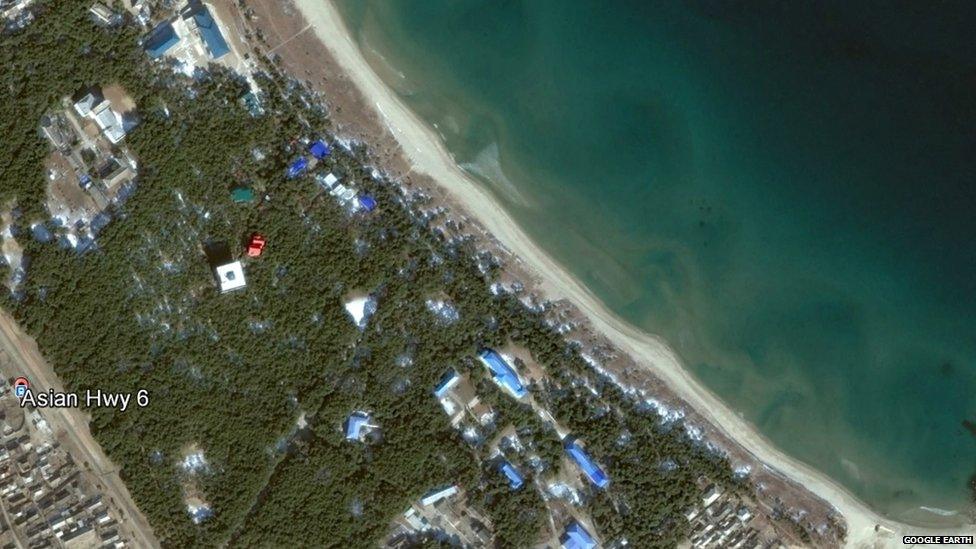
Satellite images from Google Earth were able to map North Korea's coastal communities of Majon and Sijung
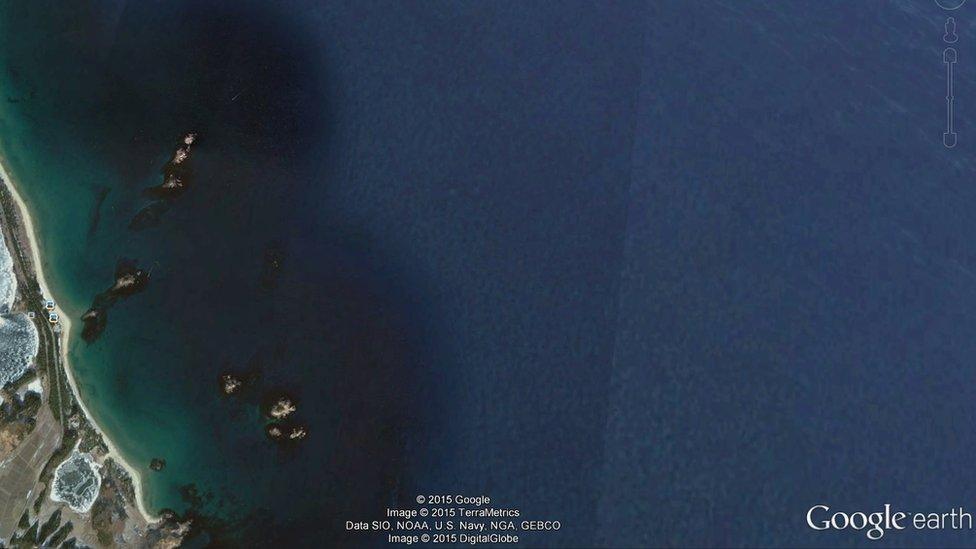
This Google Earth image shows clear blue waters off the local city of Sijung, which lies along North Korea's east coast
The allure of strange waves
North Korea has opened its first ski resort and welcomed foreigners to participate in the Pyongyang marathon, but is it ready to embrace surfing culture?
"Tourists who join the trip will be going for the novelty factor - the bragging rights to say they went surfing in North Korea," Jean Lee said. "But they should keep in mind that many governments have beefed up travel warnings to North Korea, following a series of tourist arrests."
"I would also urge any traveller to think about safety: surfing can be dangerous, even for experienced surfers and this is a country that has limited medicine and medical care."
The BBC spoke to several surfers and surf experts to find out if they would participate in a surfing tour to North Korea.
"I'd definitely go to North Korea to surf if I could. It'd be less crowded than somewhere like Bali for sure," said Don Munro, 68, from New South Wales, Australia.
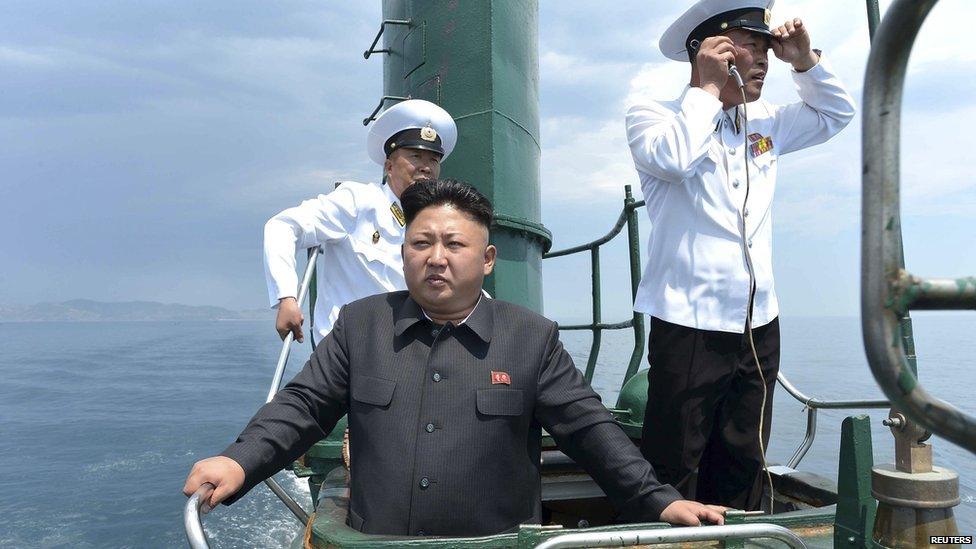
While some surfers expressed interest in visiting North Korea, others remained hesitant about supporting the regime
Mr Munro, who has travelled to destinations like Fiji, Samoa and South Africa for the sport, said one aspect of surf culture was seeking out "different and exotic places" to ride waves.
"There's something particularly alluring about surfing waves that you've never surfed before," said Justin Housman, an editor at Surfer Magazine in San Francisco.
"When we travel to surf, we often try to find spots that aren't crowded but it's getting harder as the sport grows in popularity.
"But I'm not sure if I would go on a North Korean surf trip. I'd be a little wary of something going wrong with diplomatic relations while I was there."
But like other tourists to North Korea, many surfers also expressed their "divided reluctance" in paying money to fund the regime.
"As surfers, we love finding new places to ride waves," said Riley, an 18-year-old surfboard salesman from California. But he would prefer not to "support a country that actively... oppresses innocent people".
Ericson Gangoso, 32, a surfer from the Philippines agreed.
"Surfing is about being happy and interacting with the locals. I'm not sure I would gain anything surfing in a country that treats its people so badly - not my idea of a holiday."
Additional reporting by Joshua Lim.
- Published10 April 2013
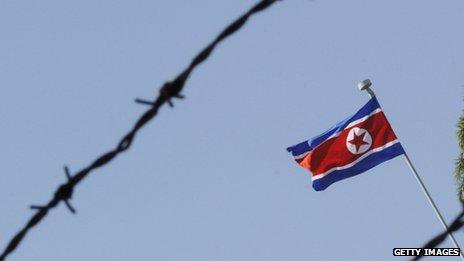
- Published3 November 2014
